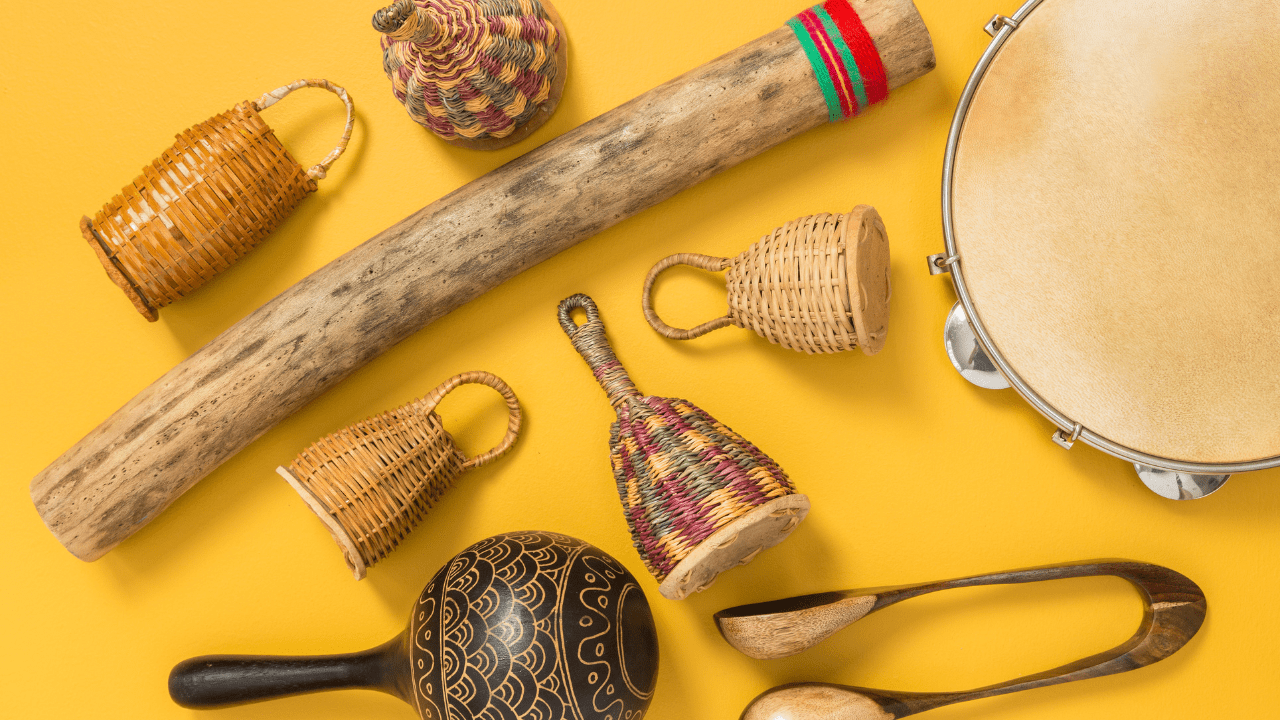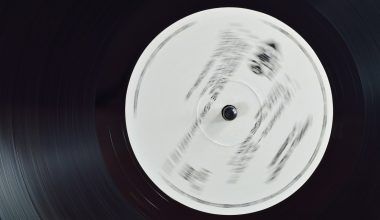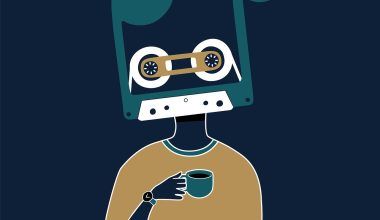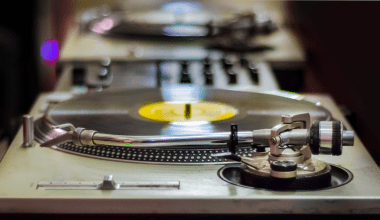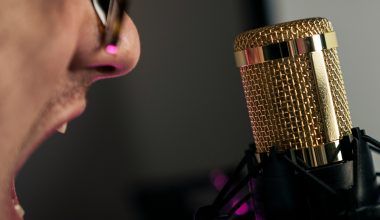Imagine you’ve just created the perfect song. It’s got the beats, the melody, and lyrics everyone will love. Now, you upload it online, but someone else claims it’s theirs. Or, worse, you see it being played somewhere, and you don’t get a penny for it. That’s where Music ID saves the day!
Music ID is like your song’s ID card. Just as you have an identity card to prove who you are, your song gets a Music ID to show it belongs to you. It helps keep your music safe, makes sure you earn the money you deserve, and ensures your fans can easily find your tracks.
Let’s dive into this simple but super important part of the music world and see how it works.
What is Music ID?
A Music ID is a unique number or code assigned to every song or album. It’s like a special tag that ensures every piece of music can be tracked, recognized, and protected.
There are different kinds of Music IDs:
- ISRC (International Standard Recording Code): This is for individual songs or sound recordings.
- ISWC (International Standard Musical Work Code): This tracks the composition of the song, like its lyrics and melody.
- UPC (Universal Product Code): Used for albums or collections.
These codes make sure that your music is never lost in the crowd. Think of them as labels that let the world know, “This song is yours!”
Why is Music ID Important for Artists?
For musicians, having a Music ID is not just helpful—it’s essential. Here’s why:
1. Protects Your Music
Without a Music ID, your music could be copied or claimed by someone else. Music IDs link your name and details to your song, proving it’s yours.
2. Makes Sure You Get Paid
Every time someone streams, downloads, or plays your song, Music ID ensures that the royalties reach you. It’s like having a personal accountant who keeps track of where your music is being used.
3. Global Recognition
When your song is shared on platforms like Spotify, YouTube, or TikTok, the Music ID ensures it’s correctly credited to you. Whether someone listens in India or the USA, the song remains yours.
4. Easier Licensing
If someone wants to use your song in a movie, ad, or remix, having a Music ID makes the licensing process much smoother.
How Does Music ID Work?
Let’s break it down in simple steps:
- Create Your Music: You record your song or album.
- Assign an ID: Either your music distributor (like Deliver My Tune) gives you an ID, or you register for it yourself.
- Upload Your Song: Platforms like Spotify or YouTube use this ID to track plays, downloads, and more.
- Collect Royalties: The ID helps calculate and send your earnings based on your song’s performance.
Without a Music ID, your song could get lost in the massive ocean of music online.
Types of Music IDs and What They Do
There are a few main types of Music IDs, each with its own job:
ISRC (International Standard Recording Code)
This is like a barcode for individual recordings. Every version of your song gets its own ISRC code, so even if you release a remix or acoustic version, it has a unique ID.
ISWC (International Standard Musical Work Code)
This tracks the composition—the lyrics, melody, and structure of your song. If your music gets covered by another artist, this code ensures you still get credited.
UPC (Universal Product Code)
Used for albums or larger collections of songs. Think of this as an umbrella ID for multiple tracks.
How to Get a Music ID
Getting a Music ID is easier than you might think. Here’s how:
1. Use a Distributor
When you release your song through a music distributor like Deliver My Tune, they automatically assign ISRC and UPC codes to your tracks. This makes things simple and hassle-free.
2. Register Through a National Agency
You can also go directly to your country’s ISRC or ISWC agency to get the codes.
3. Double-Check Your Metadata
Make sure details like the song title, artist name, and release date are accurate. This ensures the ID works perfectly.
Benefits of Music ID for Independent Artists
If you’re an independent artist, a Music ID is your best friend. Here’s how it helps:
1. No More Missed Payments
Your ID tracks every stream, sale, or play, ensuring you get the money you deserve.
2. Visibility Across Platforms
From Spotify to TikTok, Music IDs ensure your music is always attributed to you.
3. Licensing Made Simple
Want to license your song for a movie or ad? The ID makes it easy for others to find and use your track legally.
Real-Life Example: How Music ID Helped an Artist
Let’s take an example. Imagine Priya, an indie artist, uploads her song without a Music ID. It starts gaining popularity on TikTok, but since there’s no ID, Priya doesn’t earn anything from its viral success. If she had a Music ID, every use of her song would’ve been tracked, and she would’ve been paid for it.
This is why Music ID is so important for all musicians, big or small.
Music ID in Action: Platforms That Use It
Every major music platform relies on Music IDs. Here’s a quick list:
- Spotify
- Apple Music
- YouTube
- Amazon Music
- TikTok
- Facebook/Instagram Music Library
These platforms ensure that your song reaches the right listeners while giving you credit.
How Deliver My Tune Helps with Music IDs
Deliver My Tune makes the entire process super easy. Here’s what they offer:
- Automatic ISRC and UPC Codes: Every track you release gets its own unique ID.
- Metadata Optimization: They ensure all your song details are accurate.
- Global Reach: Your songs are distributed across 100+ platforms.
Music ID and Copyright: What’s the Connection?
Music IDs also protect your copyright. By linking your song to you, it ensures that no one else can claim it as their own. Combine your Music ID with copyright registration for complete protection.
Tips for Managing Your Music ID
Here are some tips to keep your Music IDs organized:
- Keep Records: Save all your ISRC and UPC codes in one place.
- Double-Check Metadata: Ensure your song’s details are correct before uploading.
- Work with Professionals: Platforms like Deliver My Tune handle most of the technical stuff for you.
The Future of Music ID: AI and Blockchain
The future is exciting! Imagine AI tools that can instantly create IDs or blockchain technology that makes royalty payments even faster. These innovations will make Music ID even more powerful for artists.
FAQs About Music ID
Do I need a Music ID for every song?
Yes, every track should have a unique ID to ensure proper tracking and payments.
Can I create a Music ID myself?
Yes, but it’s easier to use a distributor like Deliver My Tune.
How much does a Music ID cost?
Some distributors include them for free, while others may charge a small fee.
Conclusion: Why Every Artist Needs a Music ID
In a world full of music, standing out and protecting your work is vital. Music ID not only helps you safeguard your songs but also ensures you earn from them. Whether you’re a budding artist or a seasoned pro, make sure every song you release has its unique ID.
Want to know more about how to distribute your music or protect your copyright? Check out Deliver My Tune’s services and start your journey today!
Related Articles:
For further reading, explore these related articles:
- The Ultimate Guide to Creating the Perfect Spotify Study Playlist
- Spotify Trial: Your Easy Guide to Enjoying Music Like a Pro
- The Ultimate Guide: How to Become a Songwriter and Chase Your Dreams
For additional resources on music marketing and distribution, visit Deliver My Tune.
